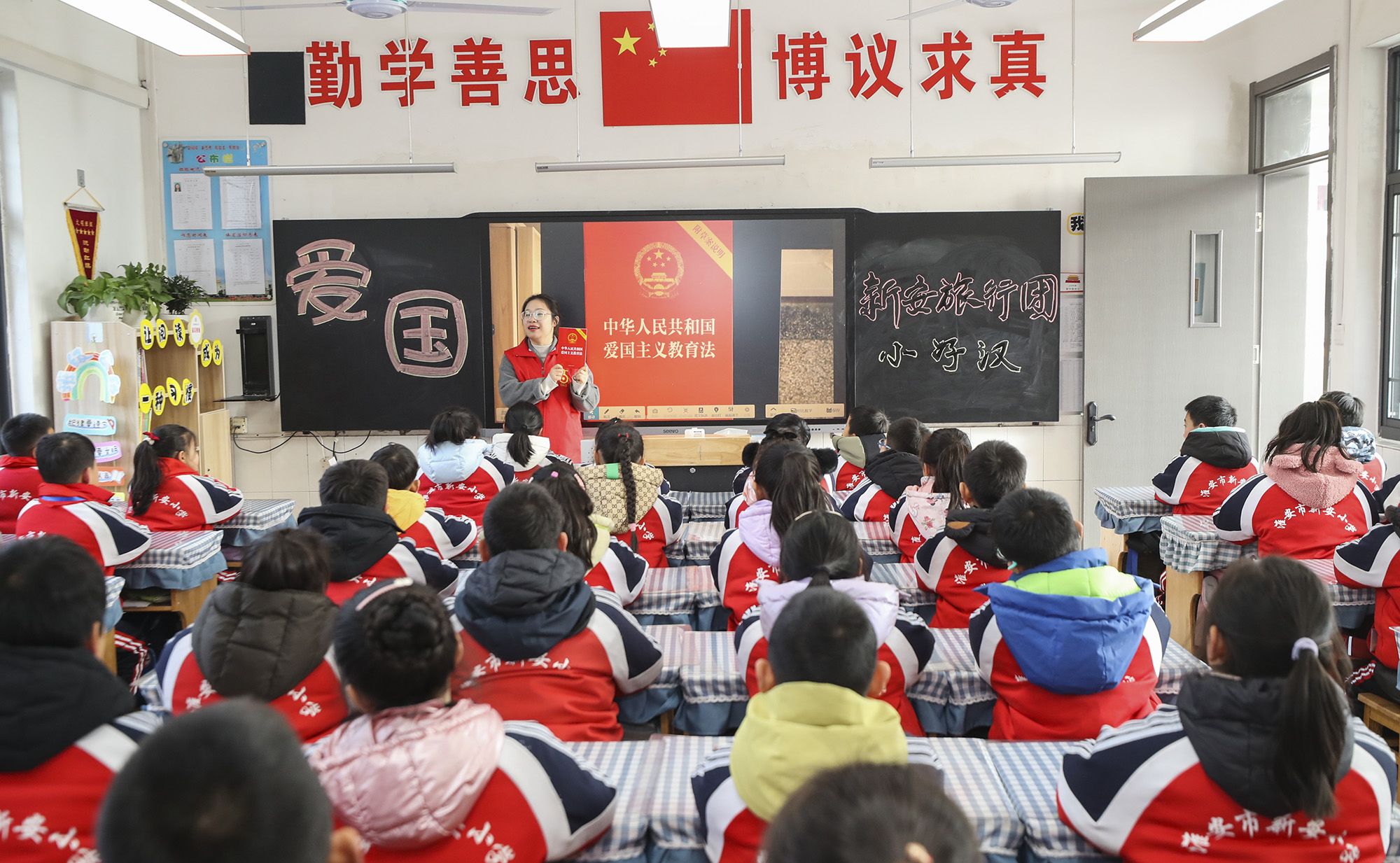In recent news, China has implemented a new Patriotic Education Law, which provides guidelines for religions on how to align with the government’s vision and values. This law aims to strengthen national unity, promote patriotism, and ensure that religious organizations and activities are in line with the Chinese Communist Party’s (CCP) principles. In this article, we will delve into the details of the new law, its implications, and how it affects various religious groups in China.

1. Background of the New Patriotic Education Law
The new Patriotic Education Law is part of China’s ongoing efforts to regulate religious practices and institutions. The law emphasizes the importance of aligning religious activities with socialist core values and the CCP’s leadership. It aims to foster a sense of national identity and loyalty among religious communities while curbing any potential threat to the country’s unity.
2. Key Provisions of the New Law
The new law outlines several key provisions that religious organizations and individuals must adhere to:
2.1. Promoting the Socialist Core Values
Religious organizations are expected to promote China’s socialist core values, which include patriotism, collectivism, and adherence to the CCP’s leadership. They are encouraged to incorporate these values into their teachings, ceremonies, and rituals.
2.2. Strengthening National Unity
Religious activities should contribute to the strengthening of national unity and social harmony. Any activities that may divide or disrupt social stability are discouraged. Religious leaders are encouraged to actively participate in promoting unity and fostering a sense of belonging among their followers.
2.3. Resisting Foreign Influence
The law emphasizes the need to resist foreign influence and safeguard national security. Religious organizations are expected to reject any foreign interference in their affairs and maintain close ties with the Chinese government. This provision aims to prevent the spread of foreign ideologies that may contradict Chinese values and interests.
2.4. Monitoring and Reporting
Religious organizations are required to monitor and report any activities or individuals that may pose a threat to national security or social stability. The law encourages religious leaders and followers to be vigilant and cooperate with the authorities in maintaining a safe and harmonious society.
3. Implications for Religious Groups
The new Patriotic Education Law has different implications for various religious groups in China. Here are some of the key considerations:
3.1. Buddhism
Buddhism, being one of the largest religions in China, has a significant presence in the country. The new law requires Buddhist temples and monasteries to actively promote socialist values, participate in patriotic education programs, and support the CCP’s leadership. This may lead to a closer alignment between Buddhism and the government, potentially influencing the teachings and practices within the religion.
3.2. Christianity
Christianity, particularly the Protestant and Catholic denominations, has been growing rapidly in China in recent years. Under the new law, Christian churches are expected to promote socialist values, reject foreign influence, and cooperate closely with the government. The law may result in increased scrutiny and control over Christian activities, potentially affecting the autonomy and independence of churches.
3.3. Islam
Islam has a significant presence in China, primarily among the Uyghur community in the Xinjiang region. The new law calls for the promotion of socialist values within Islamic teachings and practices. It also emphasizes the need to resist foreign influence and maintain close ties with the Chinese government. The law may lead to increased surveillance and restrictions on Islamic activities, particularly in Xinjiang.
3.4. Other Religions
Other religions, such as Taoism and folk religions, also fall under the purview of the new law. These religions are expected to align with socialist values, promote national unity, and resist foreign influence. The law may have varying impacts on different religious practices and traditions, depending on their compatibility with the government’s vision.

4. Ensuring Compliance with the Law
To ensure compliance with the new Patriotic Education Law, the Chinese government has established mechanisms for monitoring and oversight. These include:
4.1. Government Registration
Religious organizations must register with the government and obtain official recognition. The registration process involves providing detailed information about the organization’s activities, leadership, and adherence to the law’s provisions. Failure to register may result in legal repercussions and restrictions on religious activities.
4.2. Training and Education Programs
The government conducts training and education programs for religious leaders to familiarize them with the requirements of the law. These programs aim to promote understanding and cooperation between religious organizations and the government, ensuring that they align their activities with the prescribed guidelines.
4.3. Monitoring and Inspection
Government authorities conduct regular monitoring and inspections of religious institutions to ensure compliance with the law. This includes evaluating their adherence to socialist values, their engagement in patriotic education, and their cooperation with the government. Non-compliance may lead to penalties, restrictions, or even the closure of religious institutions.

5. Criticisms and Concerns
The new Patriotic Education Law has faced criticism from various quarters, both within China and internationally. Some of the concerns raised include:
5.1. Suppression of Religious Freedom
Critics argue that the law infringes upon religious freedom by imposing restrictions and control over religious activities. They contend that religious organizations should be allowed to operate independently without interference from the government, as long as they do not pose a threat to national security or social stability.
5.2. Potential Cultural Homogenization
There are concerns that the law’s emphasis on socialist values may lead to a homogenization of religious practices and beliefs. Critics argue that the diversity and richness of China’s religious traditions could be undermined if religious organizations are compelled to conform to a single set of values and principles.
5.3. Impact on Minority Religions
The law’s provisions may disproportionately affect minority religions and ethnic groups. Critics argue that these groups may face increased surveillance, discrimination, and restrictions on their religious practices, leading to a potential erosion of their cultural identity.
Conclusion
China’s new Patriotic Education Law provides guidelines for religions to align their activities with the government’s vision and values. While the law aims to promote national unity and safeguard national security, it has raised concerns about potential infringements on religious freedom and cultural diversity. The implications of the law vary for different religious groups, and compliance measures have been put in place to ensure adherence. As China continues to navigate the balance between religious freedom and national interests, the impact of the new law on religious communities will be closely watched.
